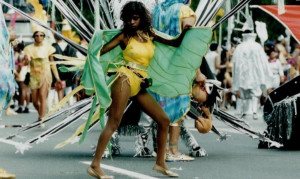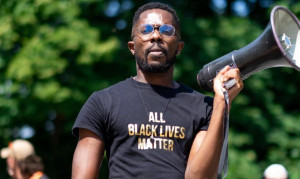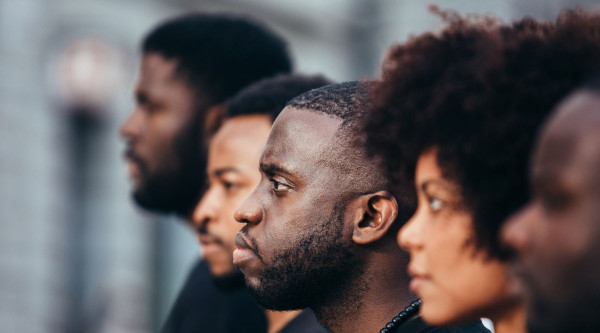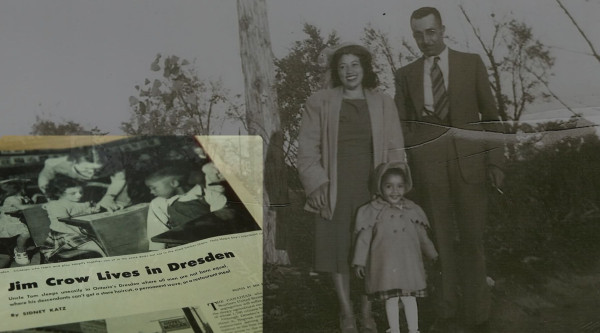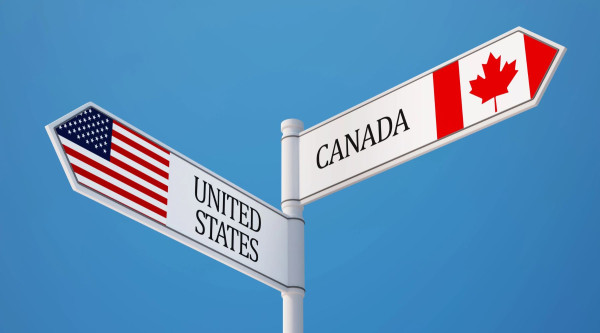“Is there anything you’d like to discuss with the Prime Minister?” asked the voice.
“Uhm, is there anything he’d like to discuss with me?” I quipped back with a smile.
Sarcasm is my default response when I’m at a loss for words. But hey, this is not the kind of interview you turn down. Even if you only have 24 hours to prepare.
“You can ask whatever you like, you’ll have 15 minutes,” they said.
The next morning at 8:33 am the phone rang again, a chipper voice calling from the prime minister’s switchboard greeted me good morning and connected me with Mr. Trudeau. He said he had just ushered his three children out the door to school. After some small talk, I asked him the questions I thought might be on our readers’ minds at this moment. Here’s an abridged version of our short call.
So, it’s Black history month and I thought we could chat about that first, but when I woke up this morning I was overwhelmed by the new COVID headlines, talking about an imminent third wave. As I’m sure you know, critics have called the government’s response to COVID19 in Black communities slow and even ineffective. Advocates are calling for workplace safety measures that help target the relationship between low-income care work and COVID19 spread. They’re calling for low-income workers to get paid time off and access to adequate places to quarantine if necessary. The numbers are so daunting, in Toronto, alone at one point Black people were making up 83% of cases. What do you say to those people?
First of all, I am so glad to be speaking with you. You continue to do really important work. It’s amazing to see the Black community come together amid numerous challenges and established leaders and community hubs to uplift voices that often get subsumed. What you're doing really matters!
It’s true COVID19 has not hit everyone the same way. Racialized Canadians make a larger proportion of frontline workers and have jobs that don’t allow you to work from home, leaving them vulnerable. A legitimate skepticism about institutions and our collective ability to care for the most vulnerable also make the situation worse. We need to do a better job of responding to that. As part of the Vaccine Task Force’s recommendations, we have prioritized racialized Canadians for early vaccination.
As we move forward, we need to keep track of what matters, be it fast-tracking permanent residency for vulnerable immigrant Canadians, or federal government initiatives to send extra funds to vulnerable provinces. There are also other challenges, such as the paid sick leave initiative. Many people are resisting that because their job is so precarious. We need to address these challenges and try to help these people.
What do you see as the logical next step when it comes to COVID19 support. Canada was praised around the world for giving $2000 a month with the Canada Emergency Response Benefit (CERB). And many are saying that's proof that we're able to implement a Universal Basic Income. Is UBI something you'd be in support of?
There’ve been multiple studies by experts discussing the pros and cons of this. Instead of looking at it as one single program, I’m more interested in reflecting on the various challenges people face. The Canada Child Benefit (CCB) represents a significant piece of what could be seen as a Universal Basic Income for vulnerable families. It’s a program that really worked.
However, we also need to ask if there are similar programs for other groups that are slightly more targeted. I’m not entirely convinced of the exact model that would work. Right now, we are putting forward different programs to understand what the next steps could be.
I have two young kids and a few years ago one of them asked me, “Mom why do we need Black history month?” and I found myself hesitating to answer because I realized I’d have to explain to him that the creation of Black History Month was a response to generations of racism and erasure that Black people have faced. I wasn’t sure if I was ready to explain all of that to him at such a young age. I’m curious, how do you explain racism to your kids?
Well, it’s an ongoing conversation. Understanding that people should be treated the same regardless of their skin colour is something that we’ve tried to be very proactive about with our kids. They are obviously privileged, but they started their schooling at a local French public school, with huge socio-economic disparities and kids from different backgrounds. This led to many conversations on how people are treated differently and how to be respectful and defend each other.
As we’re celebrating the 25th anniversary of Black History Month in Canada, we need to emphasize that Black history is everyone’s history, but it hasn’t been told to everyone the same way. For instance, we need to reconcile how non-Indigenous Canadians understand the history of Indigenous people in Canada. Similarly, when Canadians think of Black history, they may not understand that the Black community has been integral to Canada over the past many decades and centuries. They may not also understand the issue of Black Canadians in Nova Scotia or know about the earliest Black communities in the country and their various challenges and successes.
In August of 2020, the government of Canada officially acknowledged that slavery happened in Canada. That was a big deal for me, and we published a story about it on ByBlacks that included a mention of the Black Canadian poet, Nadine Williams, who helped make this happen. But the story got almost no coverage in mainstream media. There’s a sort of national denial of our history with racism in Canada. What do you say to Canadians who feel that racism is an American problem?
I remember giving a press conference recognizing the International Decade For People of African descent, the systemic discrimination, unconscious bias, and anti-Black racism. Then, we got 20 questions on everything else, which was utterly disappointing. There's a challenge of diversity in media, for sure. This is something that I think Canadians woke up to a little bit, with some of the movements and the attention drawn to it last year following George Floyd, and so many of the terrible videos that came out highlighting the reality.
There are so many microaggressions and different forms of discrimination racialized Canadians face that the rest of the country is unaware of. There are structural and systemic challenges.
The same people who would absolutely say “Yes, racism is a systemic problem in the United States” resist saying it’s a problem in Canada. I think we’re getting better at that. We are seeing numerous voices and allies come forward and highlight this and the changes we’re working on making in our systems are all shifts in the conversation. I’m particularly inspired by young people who see it and demand better. I also laud the young Black community leaders, activists, artists, poets, and entrepreneurs who are showing us what can be done.
One of my favourite pieces of Black history is about Amber Valley in Alberta. It was a thriving Black community with its own school, post office etc. Until they got a little too successful and people petitioned against the community’s existence. Eventually, the prime minister at the time, Sir Wilfred Laurier, introduced an order saying that no more Black people could immigrate to this community, saying they were “unfit for the cold weather.” It’s my favourite story because it shows the resilience of Black people in Canada but also shows the sort of polite or diplomatic racism that Canada specializes in. Is there any piece of Black Canadian history that has really stayed with you or that resonates with you?
A couple of years ago, I went to the Black Cultural Centre in Nova Scotia. It was an eye-opener for me. I had always known of the Black community in Atlantic Canada. But walking through that museum and sitting with the community, I developed a better understanding of the strength and the challenges they’ve gone through. But I would love to read more about Amber Valley, those terrible moments of our past remind us that we can do better and that we have to do better.
Speaking of doing better, people expect that public institutions will set the example for how to celebrate something like Black History Month, but over the last couple of weeks we’ve seen the government have some real Black History Month fails; such as The Region of Durham with its well-intentioned but offensive employee activity. Why do you think organizations are finding it so difficult to get this right during Black History Month?
First and foremost, I suggest talking to members of the Black community to see how they want to celebrate their own history, which is also our history. I think that instinct of trying to imagine what somebody would want without actually taking the time to consult and listen and work with them is an example of missing the mark, and emphasizes how much work we still have to do.
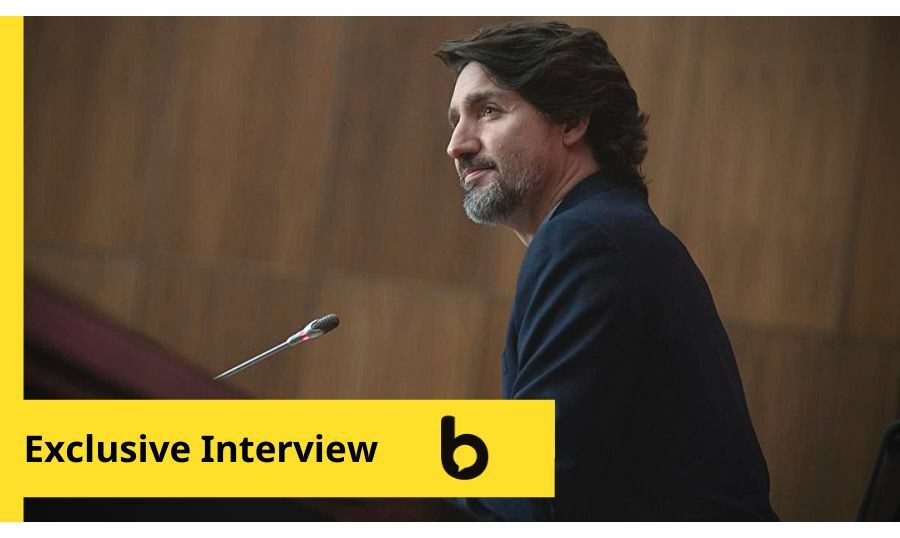
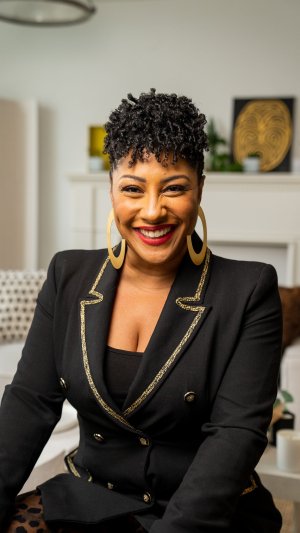 By
By 




